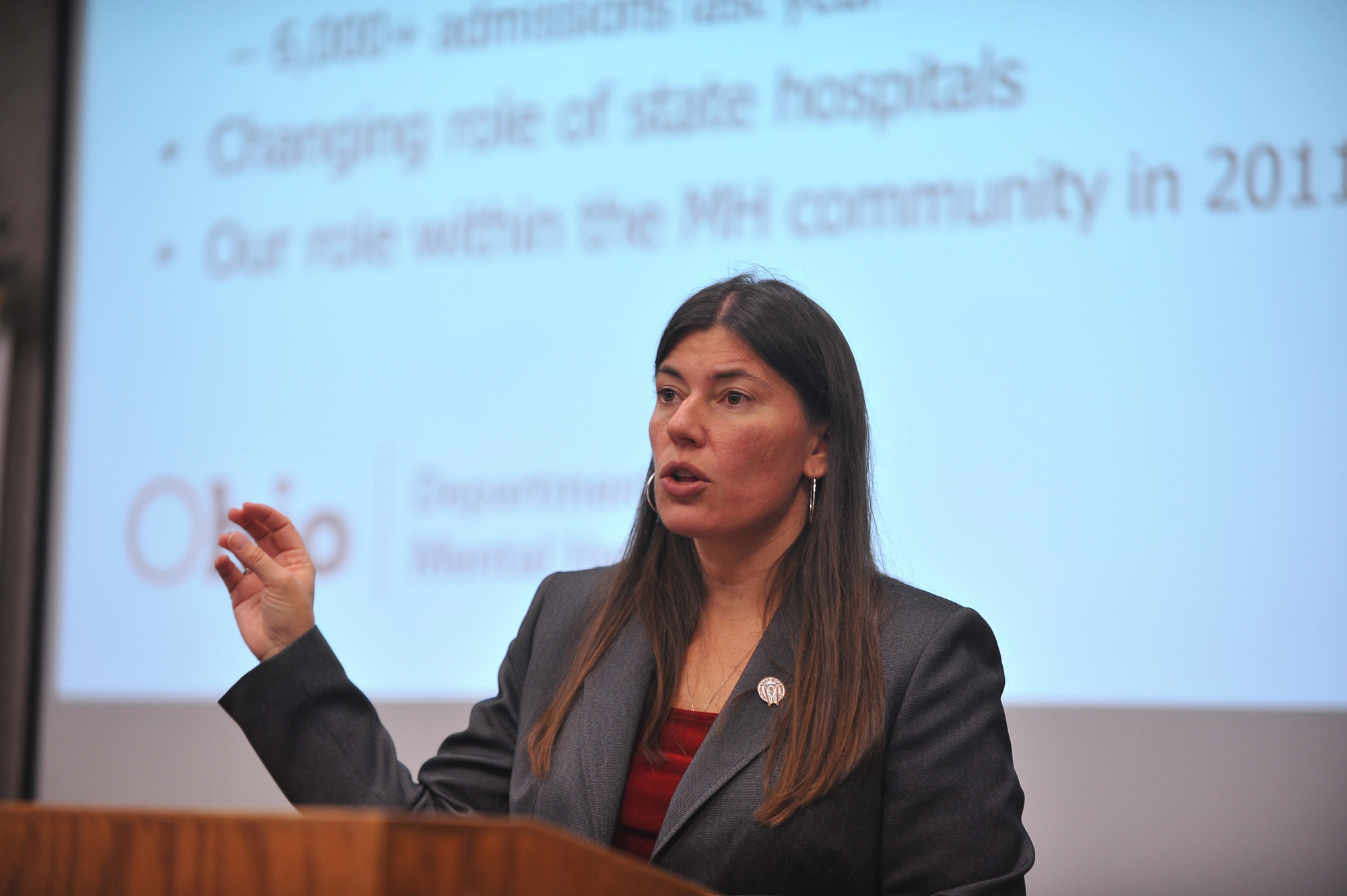Director of Ohio Department of Mental Health Visits College of Public Health
Posted Nov. 16, 2011The Ohio Department of Mental Health Director Tracy Plouck visited Kent State University’s College of Public Health on Nov. 14 to tour its facilities and to speak with faculty, administrators and community members about the upcoming goals of the state department. In total, more than 200,000 adults and 100,000 youth are served through the mental health system annually.
 A Kent State alumna, Plouck earned a bachelor’s degree from Kent State and a master’s degree from The Ohio State University in public administration.
A Kent State alumna, Plouck earned a bachelor’s degree from Kent State and a master’s degree from The Ohio State University in public administration.
Plouk joined the Ohio Department of Mental Health in January 2011 and brings strong policy background to her role, having served twice as Ohio’s Medicaid director and also as a deputy director with the Ohio Department of Developmental Disabilities.
While presenting, Plouck expressed excitement about the changes in policy that she’s been able to implement so far.
“State-run organizations like ODMH tend to have a culture of not carrying out the policies that are proposed,” Plouk said. “So it was really neat to be able to come in this year and actually get several policies passed and implemented.”
One of the policy changes includes a 72-hour observation period to better determine if people with mental health issues should be hospitalized, placed on medication or serviced with other resources. In addition, the department is working on collaborating with other agencies.
Plouck presented steps that the state of Ohio is taking to make agencies like the Ohio Department of Mental Health and the Ohio Department of Alcohol and Drug Addiction Services more efficient. Following the presentation, Sonia Alemagno, Dean of College of Public Health moderated a question-and-answer session.
Alemagno mentioned that the process of implementing new policy is difficult because of budget cuts and lack of money necessary to fund new programs.
A key point Plouck mentioned was that she’d like to see mental health care become a more cohesive operation.
“Many of the issues I’ve addressed involve paradigm shifts in how we care for the mentally disabled; we’re dealing with a whole person, not just isolated symptoms,” Plouck said.
In addition, as director, knowing how to budget and see the financial opportunity in situations are important.
For more information on the Ohio Department of Mental Health, visit www.mh.state.oh.us/.
For more information on Kent State’s College of Public Health, visit www.kent.edu/publichealth/.
# # #
Media Contacts:
Ken Slenkovich, kslenkov@kent.edu, 330-672-6504
Emily Vincent, evincen2@kent.edu, 330-672-8595

Facebook
Twitter
Google+
LinkedIn
Instagram
YouTube
More Ways to Connect